Uniquely West Des Moines
At West, you’ll enjoy a space that invites creativity, innovation, and partnership:
Celebrate! Innovation™ Learning Exhibition is a museum of technological innovations we use as a teaching tool.
American Innovators
200 Plus Years of American Innovators (1742-1965)
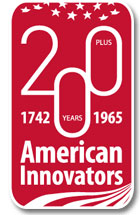
They each started with an idea, but these innovators didn't stop there, even in the face of prejudice, lack or formal education, or class constraints. They persevered. They refused to be limited by conventional thinking. They ignored the criticism. They changed the world.
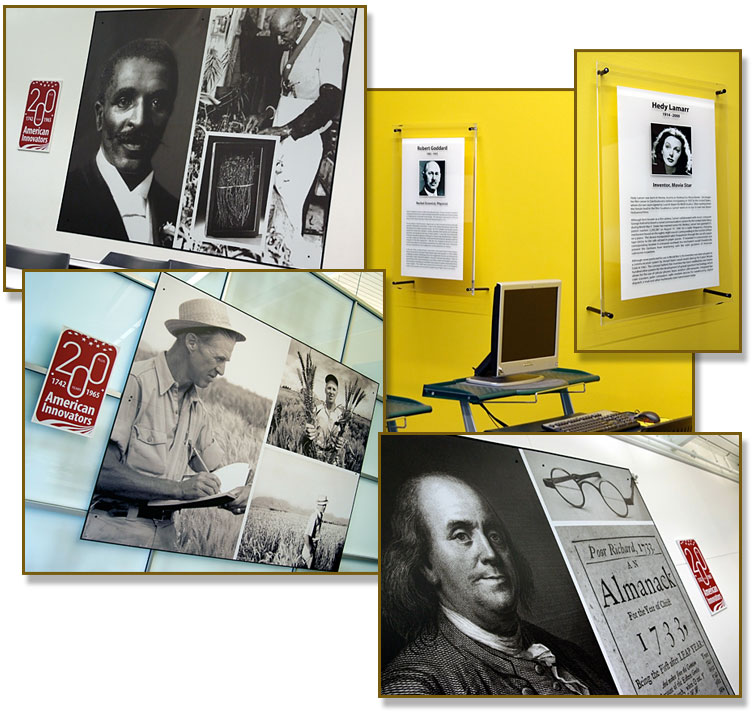
Innovation provides a cornerstone of the American identity. In a nation of immigrants, the genius of innovation has emerged from every ethnic group, gender, economic condition, educational background and race.
This exhibit illustrates the diversity of American innovation by sharing the stories of 17 very unique individuals; people who represent a small slice of the vast amount of innovation that has occurred in America since its colonial beginnings.
Telecommunications
150 Years of Telecom (1845-1995)
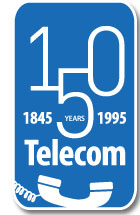
As our culture undergoes continual change, few things have impacted it more powerfully than the rapid advances in electronic communication, especially the areas of telecommunications and data communications.
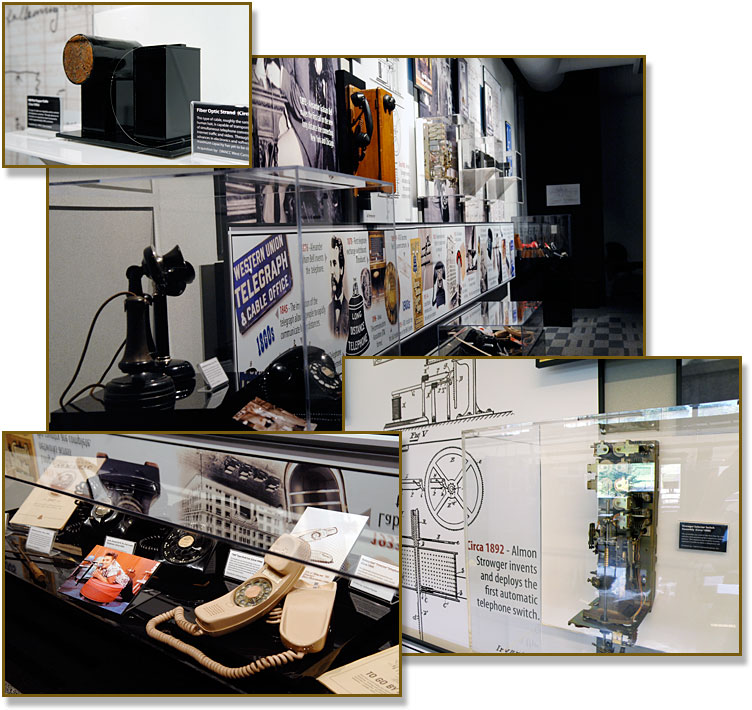
From the advent of the telegraph in 1845 (which allowed people for the first time to rapidly communicate over vast distances) to the invention of the telephone to the development of the Internet, the means of long-distance communication have steadily improved through major innovations by a large number of people.
This exhibit illustrates 150 years of technological transition through the use of artifacts, visuals and digital video and serves as a primary teaching tool for the DMACC West Telecom Program.
Personal Computing
20 Years of Personal Computing (1975-1995)
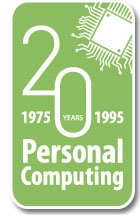
Since 1975, the personal computer has developed from a machine with little practical use to a product that touches almost everyone in some way. As an example of innovation, the PC embodies the epitome of process thinking dependent on the continuous contributions of many.
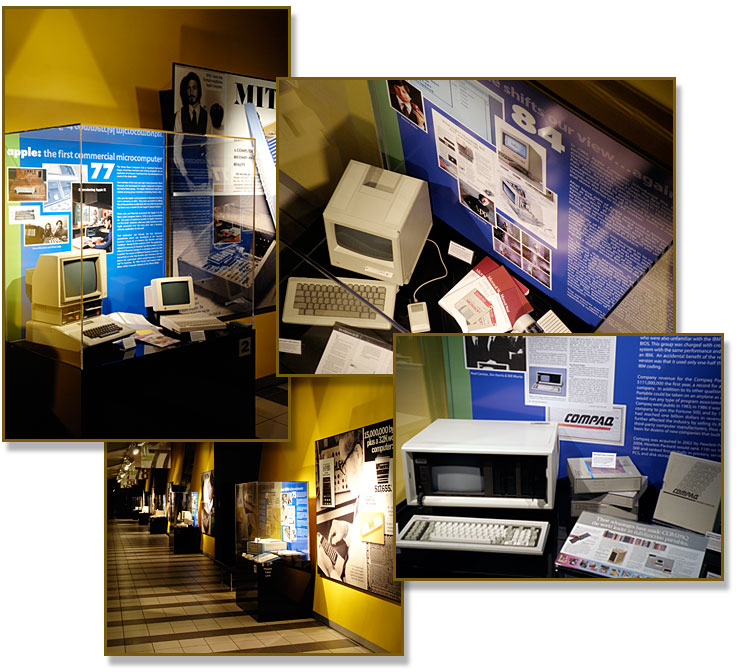
Most college students today have no context for a life without computers. As a result, these students typically view the PC as nothing more than a common appliance and may not be able to fully appreciate its impact.
This exhibit illustrates the relatively rapid development and innovation of the PC by presenting a linear timeline of development. The use of artifacts, visuals and digital video share the stories of the many people who had a direct impact on its incremental development.
Join us in getting creative!
We're free and open to the public.
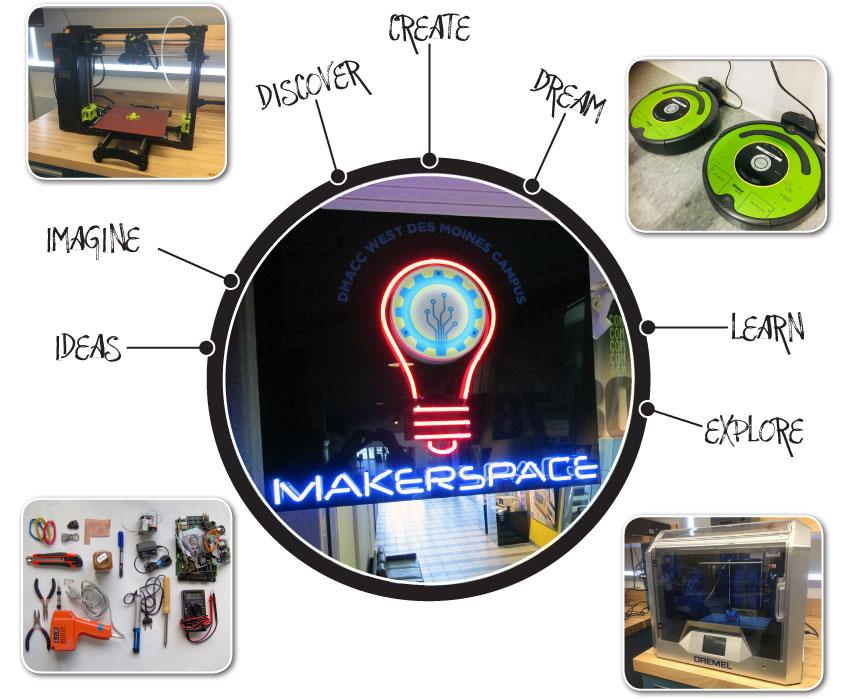
The MakerSpace is a fun, hands-on, creative, and collaborative space for all to come together, brainstorm their ideas and designs, and give those ideas form and function.
The MakerSpace hours are Tuesdays and Thursdays, 3 p.m. to 7 p.m. We are open to all ages: anyone interested in tinkering, building, creating, innovating, and inventing - come check us out!
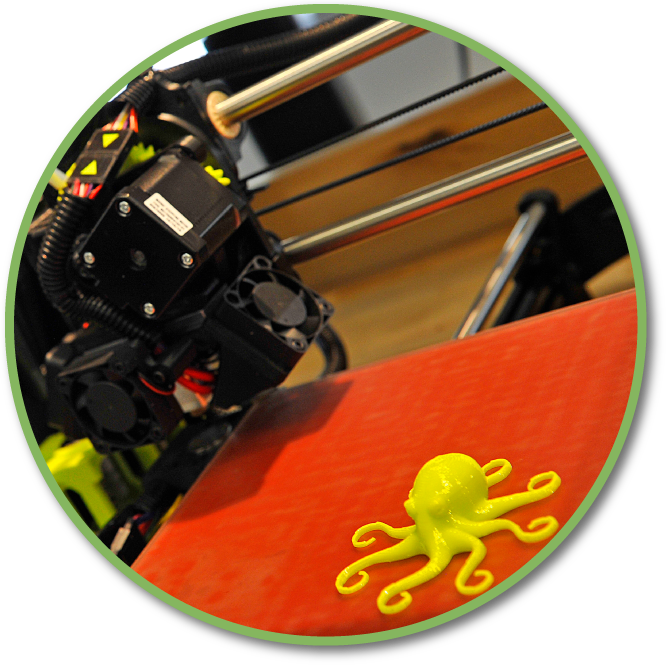
3D PRINTERS
TAZ-6 by Lulzbot and a Dremel 3D40 printer. Use software to create items of your imagination and then print them out in 3D!
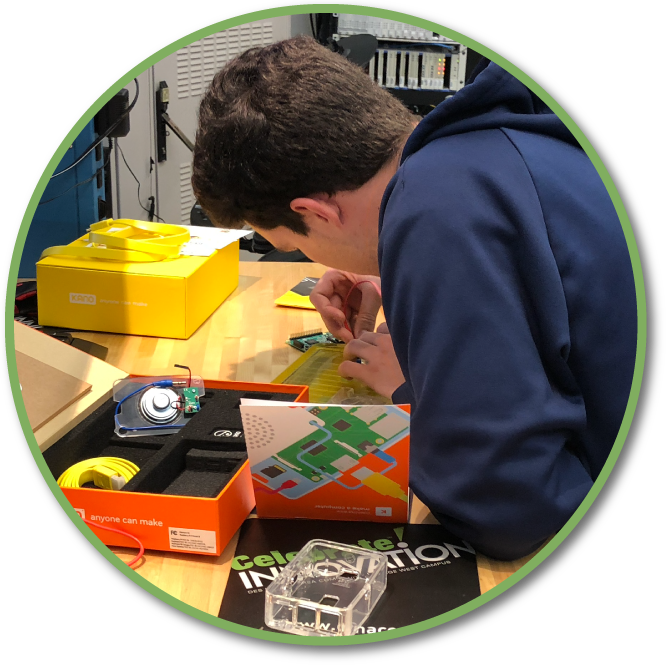
KANO COMPUTER KITS
Learn how a computer works and build one yourself.
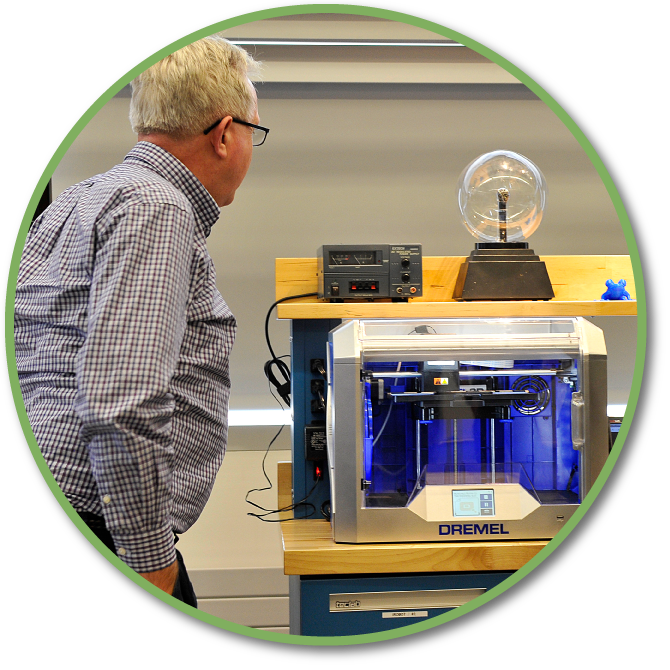
ELECTRO MAGNETISM KITS
See how the fundamentals of electromagnets work and how we can harness that power for communications and more.
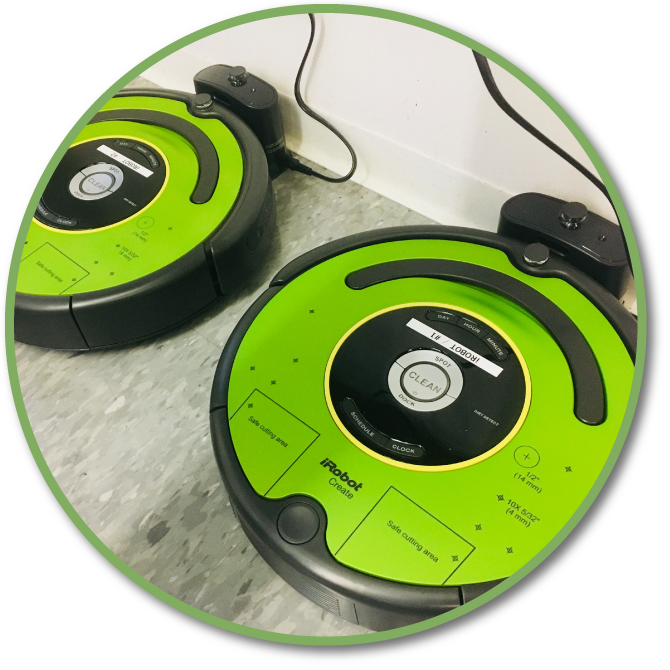
iROBOT KITS
Learn about programming and making a robot perform as you want.
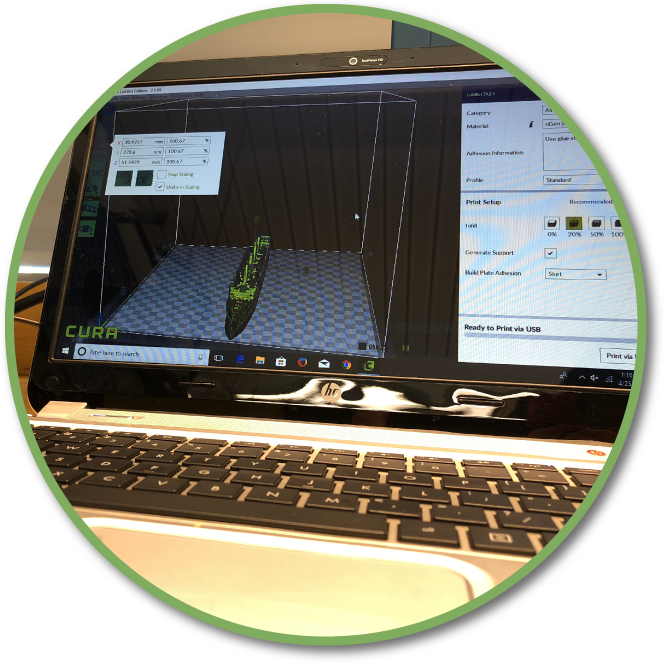
VILROS ARDUINO KITS
See how you can interface computers to the physical world with these fun kits. Create hundreds of projects that you can control with software and microcontrollers.
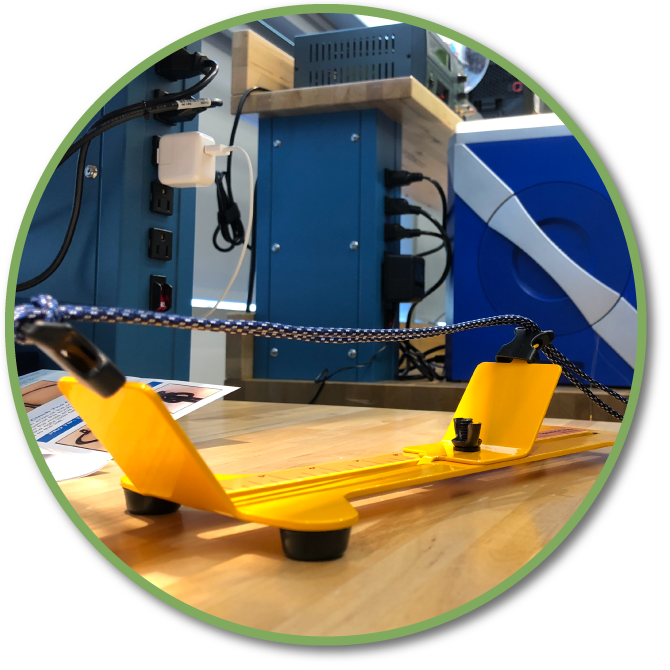
MAKEY-MAKEY KITS
Hundreds of fun projects to help learn the basics of computer interfaces and beyond.
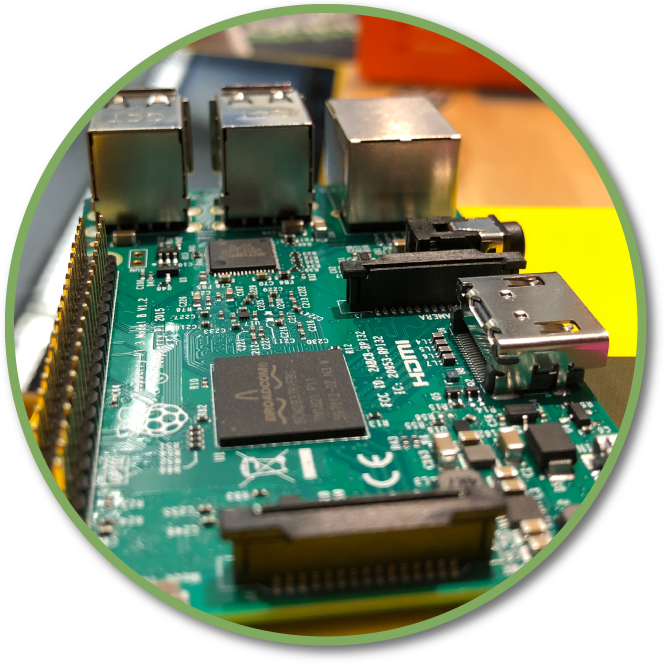
FIBER OPTICS KITS
Build a working fiber optic transmitter and receiver and see how our world is communicating now!
Unique program may encourage more growth in this IT industry
Microsoft is teaming with DMACC West Des Moines to create the Microsoft Datacenter Academy.
The new Academy will educate and train professionals to staff, maintain and service the growing number of computer networks located within the data centers throughout Central Iowa.
This is the first-of-its-kind program in the Midwest and only the fourth Microsoft Datacenter Academy in the nation.
“Our goal is to grow the number and quality of workers for these important jobs,” said Paul Englis, Senior Program Manager for Datacenter Community Development. “We have enjoyed our relationship with DMACC’s West Des Moines Campus over the years and, as a result of their location and expertise, we chose the college as our partner in this important workforce development program.”
As a first step to create the new Microsoft Data Center Academy, the company is donating to DMACC new specialized equipment from a Microsoft data center. Students will use the equipment to learn and train.
Through this partnership with Microsoft, DMACC West Des Moines Campus will be offering hands-on training with data center and network equipment to help students gain job-ready skills. Training will include infrastructure cabling, copper and fiber optic testing, and computer network connectivity. Additional programming will range from eight-weeks to approximately 20 months. Microsoft is also providing $60,000 in student scholarships for the Datacenter Academy.
“While we want to hire these Microsoft Datacenter Academy graduates, our goal is to grow the overall pool of skilled IT professionals for the region, which will serve other data centers and businesses with IT needs. Ultimately, this benefits the entire community,” added Englis.
Microsoft currently has two datacenters in West Des Moines and will be breaking ground soon on a third one. DMACC’s West Des Moines Campus is located at the entrance to the Grand Avenue Technology Corridor. Microsoft’s first datacenter, called Project Mountain, is located on the west end. Facebook operates a data center in Altoona and Apple plans to build one near Waukee.
“We’re thrilled that Microsoft chose DMACC’s West Des Moines Campus for the new Microsoft Datacenter Academy,” said Dr. Anthony Paustian, Provost of the Campus. “Central Iowa will become an even more attractive location for these data center companies as we grow this skilled workforce.”
According to Jay Nickelson, Network Technology Program Chair for the campus, starting pay for these entry-level jobs will fall within the $30,000 to $40,000 range with advancement common. Academy graduates will be qualified to enter the workforce or they can pursue their two- or four-year Information Technology degree.
Starting pay is around $30,000 with advancement common. Academy graduates will be qualified to enter the workforce or they can pursue their two or four year Information Technology degree.











